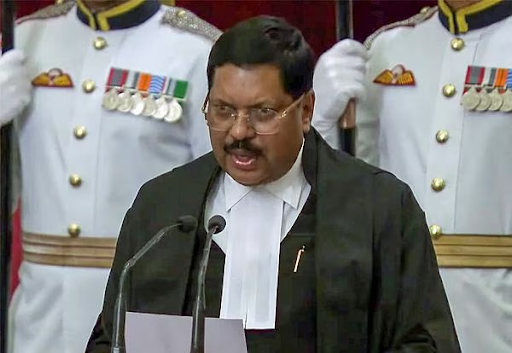Description
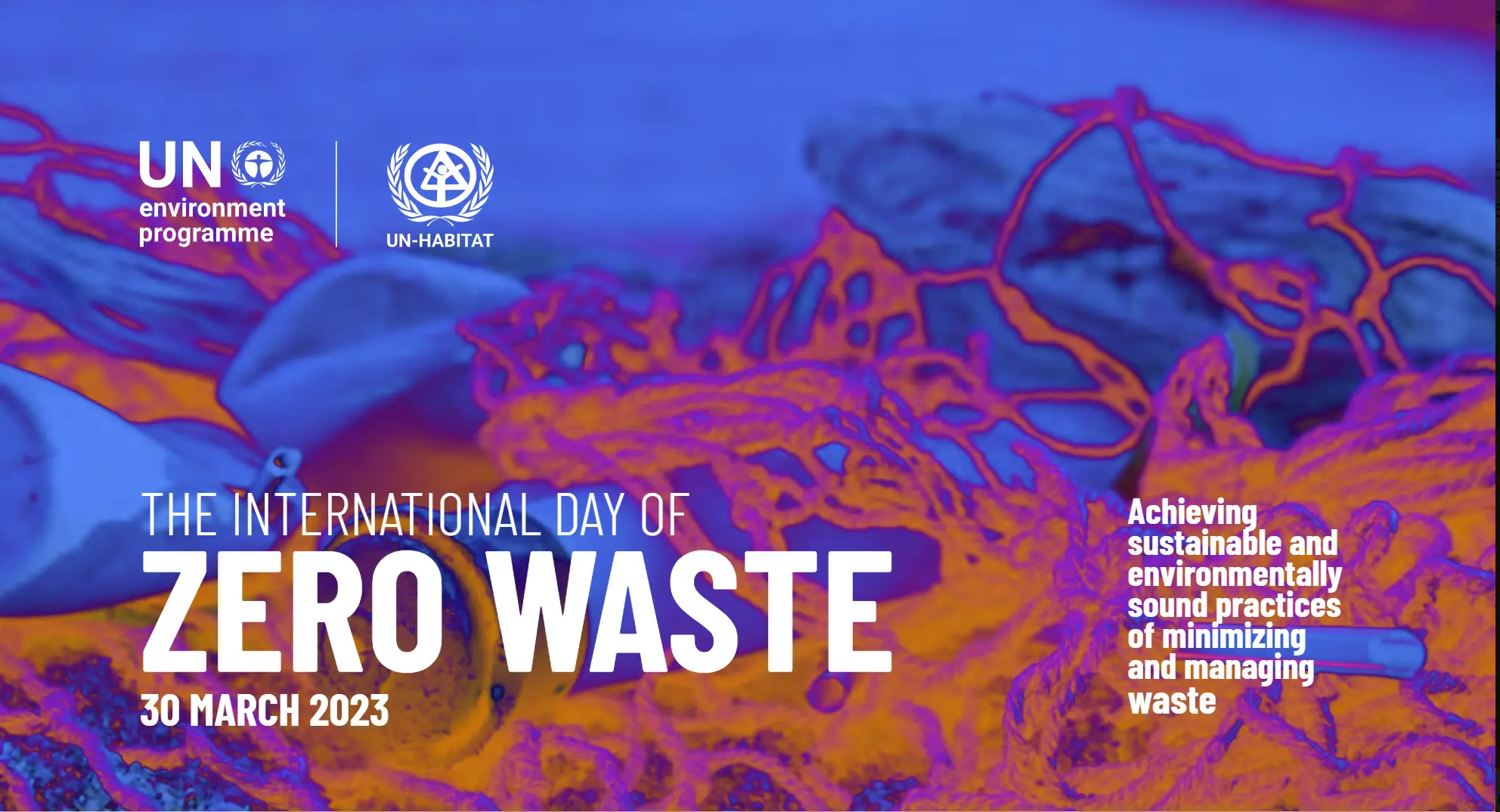
Copyright infringement not intended
Context: As part of India's observance of the International Day of Zero Waste on 30th march 2023, the Minister for Housing and Urban Affairs organised the "Swachhotsav - 2023: Rally for Trash Free Cities" in New Delhi.
Highlights of the "Swachhotsav - 2023: Rally for Trash Free Cities"
Garbage free cities
- Over 350 participants, including mayors, commissioners, mission directors, business and technology experts, women and youth leading the sanitation industry, technical institutions, and development partners, participated in the event, which featured discussions on best practices in circularity in garbage-free cities.
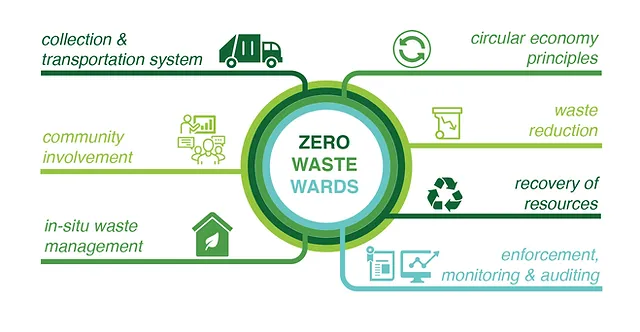
Swachhata
- According to the Minister, Swachhata has evolved into a fundamental principle in every government programme as well as in the way of life of citizens, and since 2014, India has seen a shift in sanitation and waste management.
Swachh Bharat Mission – Urban (SBM-U)
- The Swachh Bharat Mission-Urban (SBM-U) was the first significant initiative to implement the Jan Bhagidari principle.
- People’s leadership of the SBM-U transformed a government programme into a people’s programme. It became a Jan Andolan, wherein lakhs of citizens have taken on the responsibility of cleaning their streets, neighbourhoods, and parks.
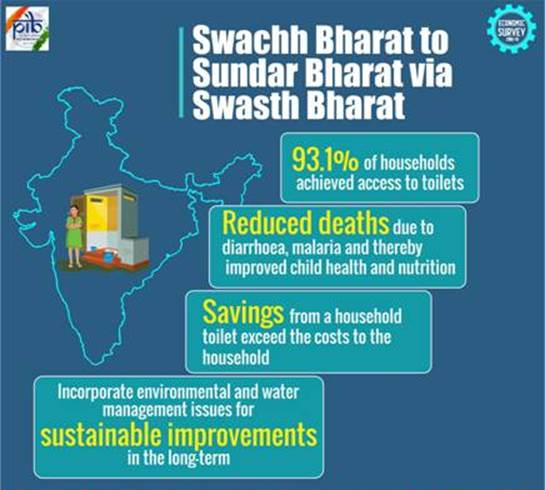
Open Defecation Free (ODF)
- The Minister stated that urban India had become completely Open Defecation Free (ODF), that 3,547 Urban Local Bodies (ULBs) were ODF+ with the functional and hygienic community and public restrooms, and that 1,191 ULBs were ODF++ with full faecal sludge management.
- ODF status: A city or ward is designated as an open defecation-free zone (ODF) if, at any given time of the day, no one is observed urinating in public.
- ODF+ status: If "at any point of the day, not a single person is seen defecating and/or urinating in the open, and all communal and public toilets are functioning and well-maintained."
- ODF++ status: If "Faecal sludge/septage and sewage must be safely handled and treated; no untreated faecal sludge/septage and sewage may be discharged or dumped in drains, aquatic bodies, or open spaces".
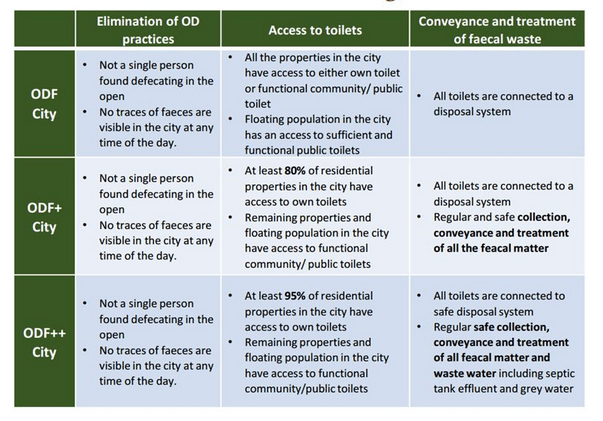
‘Stories of Change’ Compendium
- The minister revealed the "Stories of Change" Compendium, which highlights some of the incredible local achievements.
- He stated that more than 300 women from Self-Help Groups had travelled to other places to learn about different waste management strategies.
Swachhata Doots
- Many of the "Swachhata Doots" are first-time travellers, and the minister praised them for being change agents and providing a platform for them to observe, connect, and learn.
- In India's urban areas, 4 lakh women are directly employed in the sanitation and waste management industries. The government has given women a sense of dignity through the Swachh Bharat campaign, as well as livelihood options.
.jpeg)
International Day of Zero Waste
About
- The first International Day of Zero Waste is celebrated on March 30, 2023, by the United Nations Environment Programme (UNEP) and UN-Habitat.
Objectives
- The objective is to increase public understanding of how effectively managing urban trash, practising responsible consumption and production, and reaching zero waste all contribute to sustainable development.
- It strives to advance environmentally friendly patterns of production and consumption, encourages society's transition to circularity, and increases understanding of how zero-waste programmes advance the 2030 Agenda for Sustainable Development.
Significance
- The waste industry makes a considerable contribution to the triple planetary issue of pollution, biodiversity loss, and climate change.
- Just 55% of the 2.24 billion tonnes of municipal solid garbage that humanity produces each year is managed in facilities under supervision.
- Up to 14 million tonnes of plastic garbage enter aquatic environments each year, and approximately 931 million tonnes of food are lost or wasted.
- Initiatives aimed at reducing waste and preventing it together can help address the triple planetary problem, save the environment, increase food security, and boost human health and well-being.
Zero-waste approach
About
- A zero-waste strategy involves ethically producing, using, and discarding things in a closed, circular system. This implies that we reduce pollution to the air, land, and water and reuse or recover resources as much as we can.
Action at every level is necessary to achieve zero waste
- Producer: Items should be built to last and use minimal, low-impact materials. Manufacturers may further reduce pollution and waste by using less resource-intensive production and delivery techniques.
- Zero waste throughout a product's life cycle may also be made possible through advertising and carefully controlling demand.
- Consumer: By adopting new behaviours, reusing, and repairing things as much as they can before properly discarding them, consumers may also play a significant part in ensuring zero waste.
- Combined effort: Boosting waste management and enhancing recovery systems via financing and legislation is becoming more and more important as governments, communities, companies, and other stakeholders become more and more aware of the possibilities of zero-waste projects. This transformation can be aided by the Global Strategy for Sustainable Consumption and Production.
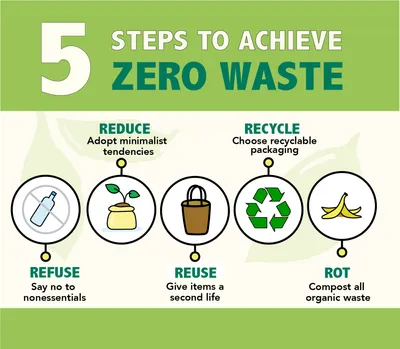
Must Read Articles:
Indian Swachhata League: https://www.iasgyan.in/daily-current-affairs/indian-swachhata-league
Solid Waste Management: https://www.iasgyan.in/daily-current-affairs/solid-waste-management
Swachh Bharat Mission: https://www.iasgyan.in/daily-current-affairs/swachh-bharat-mission-6
|
PRACTICE QUESTION
Q. Urban local bodies in India face a number of social and environmental difficulties as a result of the waste Management System. Explore innovative solid waste management techniques that can be used to address the growing garbage issues in Indian cities.
|

https://www.pib.gov.in/PressReleasePage.aspx?PRID=1911768










